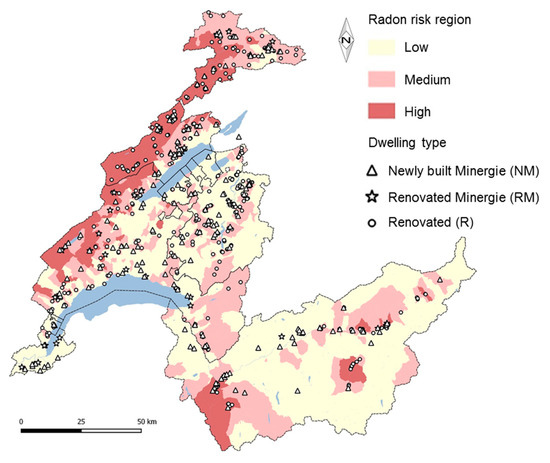Radon Investigation in 650 Energy Efficient Dwellings in Western Switzerland: Impact of Energy Renovation and Building Characteristics
Abstract
As part of more stringent energy targets in Switzerland, we witness the appearance of new green-certified dwellings while many existing dwellings have undergone energy efficiency measures. These measures have led to reduced energy consumption, but rarely consider their impact on indoor air quality. Consequently, such energy renovation actions can lead to an accumulation of radon in dwellings located in radon-prone areas at doses that can affect human health. This study compared the radon levels over 650 energy-efficient dwellings in western Switzerland between green-certified (Minergie) and energy-renovated dwellings, and analysed the building characteristics responsible of this accumulation. We found that the newly green-certified dwellings had significantly lower radon level than energy-renovated, which were green- and non-green-certified houses (geometric mean 52, 87, and 105 Bq/m3, respectively). The new dwellings with integrated mechanical ventilation exhibited lower radon concentrations. Thermal retrofitting of windows, roofs, exterior walls, and floors were associated with a higher radon level. Compared to radon measurements prior to energy renovation, we found a 20% increase in radon levels. The results highlight the need to consider indoor air quality when addressing energy savings to avoid compromising occupants’ health and are useful for enhancing the ventilation design and energy renovation procedures in dwellings.
Keywords: dwellings; indoor air quality; energy efficiency; building characteristics; thermal retrofitting
